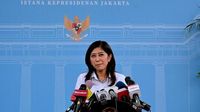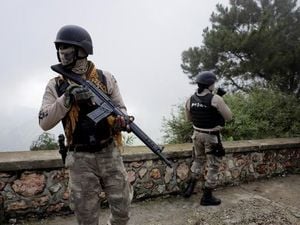In a disturbing incident reflecting ongoing challenges to press freedom, a pig's head was sent to Tempo journalist Francisca Christy Rosana, igniting a flurry of reactions from government officials and civil society alike. The package, which arrived at the Tempo office on March 20, 2025, was reportedly sent the day before from an unnamed sender. This bizarre act of intimidation has roused significant concern about the safety of journalists in Indonesia.<\/p>
The Minister of Communications and Digital, Meutya Hafid, expressed regret over the incident, stating it is "unfortunate that threats against journalists continue in our society." During a press conference at the Presidential Complex in Jakarta on March 21, she encouraged Tempo to report the matter to the police in hopes of discovering the perpetrator. "I, as a former journalist, encourage you to report this harm, so we can find out who sent it," she remarked.
Reiterating the government’s commitment to press freedom, Hafid assured that President Prabowo Subianto remains dedicated to safeguarding journalistic rights, stating, "We have always been open to public input, including from social media, and many policies have been corrected based on that feedback." She anticipated receiving a formal report from the Press Council regarding the incident and advocated for proper legal action to address the threats against Rosana.<\/p>
The day after the initial threat, reactions continued to pour in, particularly the statement from Hasan Nasbi, the Head of the Presidential Communications Office. In what many perceived as an inappropriate jest, he suggested that instead of viewing the act as a threat, the Tempo team should simply "cook" the pig's head, asserting that Rosana did not seem threatened by the incident because she had jokingly engaged with the situation. "I see from the media that Francisca was joking about it; she didn’t appear to be in any danger," Nasbi remarked.
This flippancy has attracted substantial backlash, including criticism from actor Fedi Nuril, who expressed disappointment that a government official would respond so insensitively. In a post on X (formerly Twitter), Nuril remarked, "The President's communications team should show sympathy; the government must understand its public presentation matters!"
Adding to the outrage, former Minister of Maritime Affairs and Fisheries Susi Pudjiastuti condemned Nasbi's dismissive comments, labeling them as "ignorance." On March 22, she took to Twitter to admonish President Prabowo to prevent Nasbi from representing the government in public statements going forward. "He has to stop representing the government when speaking publicly, dear President," Susi insisted.
The press continues to react to the incident amid another unsettling development when Tempo journalist Rosana reported a second act of terror—this time a box containing six severed rat carcasses, which arrived at the office in the early hours of March 22. In her X post, Rosana shared, "I can’t find any humor left to make light of this situation," which resonated critically within social media circles, reaching significant engagement from users.
The series of threats against Rosana has prompted the Press Council to demand thorough investigations into these acts of intimidation to prevent future occurrences. "These kinds of threats against journalists cannot be allowed to continue. If such acts are left unchecked, they undermine the very foundation of our democracy," stated Ninik Rahayu, the Chair of the Press Council, during a press conference.
Rahayu emphasized that the ability to report freely is essential to democracy and enshrined as a human right by the Law No. 40 of 1999 concerning the Press. "Those who feel wronged by journalistic work should pursue dialogue through legal channels rather than resorting to threats or violence," she advised, urging the police to take stringent measures against offenders.
The incident reflects broader implications surrounding the safety of journalists in Indonesia, particularly concerning those tackling socially sensitive issues like the recent floods in Jakarta, Bekasi, and Bogor—a broadcast that Rosana had notably covered prior to these threats. Tempo leadership has asserted that this is a clear attempt to silence press reports critical of those in power.
As the situation evolves, the government’s response will be closely watched to assess whether adequate protections for journalists will be implemented. The discourse surrounding press freedom continues to grow, presenting an ongoing challenge for the administration to maintain the balance between governance and the free press while addressing public concerns over safety and civil rights.
The culmination of these threats underscores the delicate state of journalism in Indonesia. As such, the reactions from both the public and press circles indicate a substantial call for accountability and protection against intimidation tactics that threaten the fundamental rights of journalists to report without fear.








